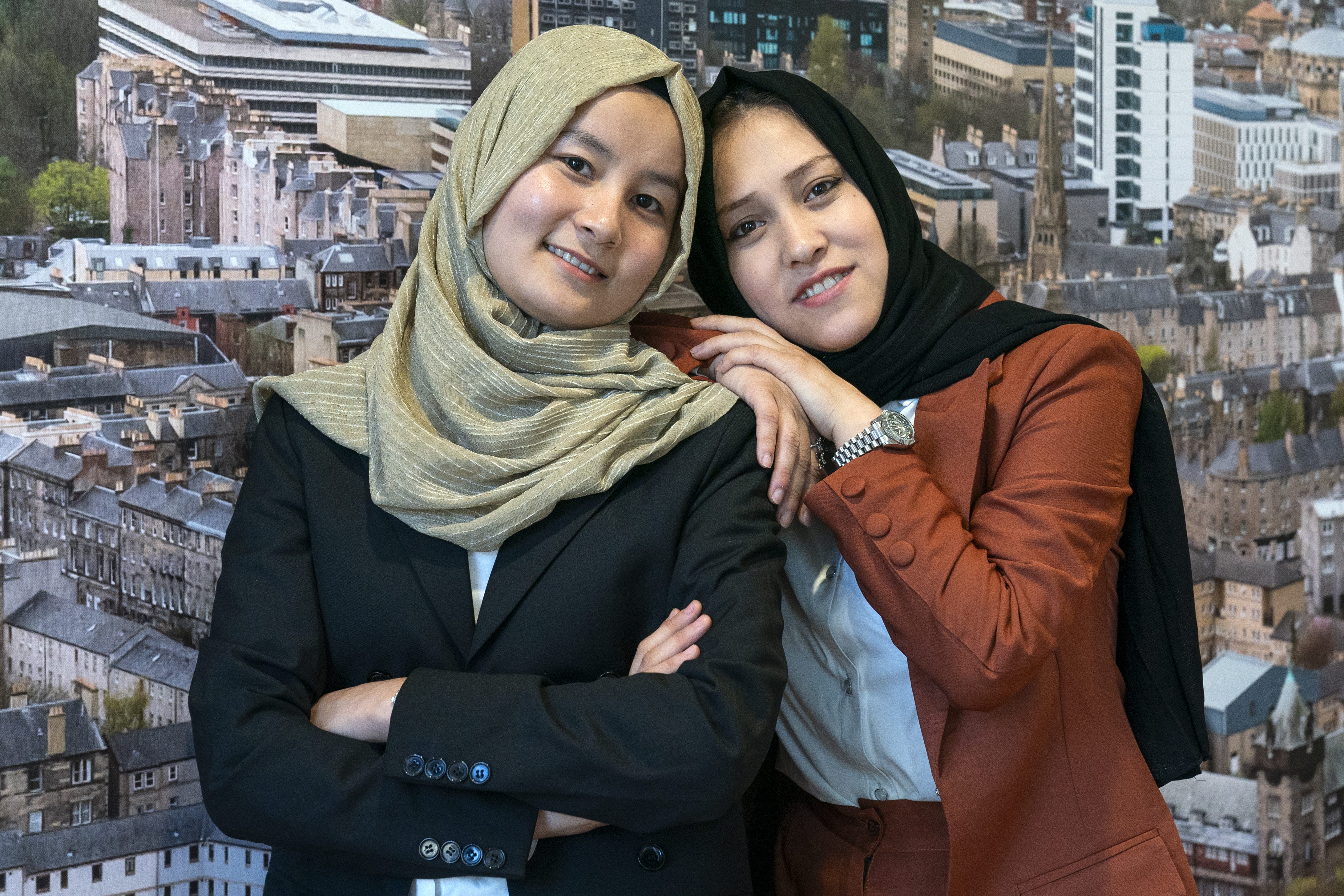Coming to Scotland is ‘paradise’ for female medical student from Afghanistan
Omulbanin Sultani is part of a group of 19 women who came to Scotland to finish their studies after the Taliban banned women from university.

Your support helps us to tell the story
From reproductive rights to climate change to Big Tech, The Independent is on the ground when the story is developing. Whether it's investigating the financials of Elon Musk's pro-Trump PAC or producing our latest documentary, 'The A Word', which shines a light on the American women fighting for reproductive rights, we know how important it is to parse out the facts from the messaging.
At such a critical moment in US history, we need reporters on the ground. Your donation allows us to keep sending journalists to speak to both sides of the story.
The Independent is trusted by Americans across the entire political spectrum. And unlike many other quality news outlets, we choose not to lock Americans out of our reporting and analysis with paywalls. We believe quality journalism should be available to everyone, paid for by those who can afford it.
Your support makes all the difference.A female medical student from Afghanistan has said arriving in Scotland – where she has come to complete her degree – was “like coming to paradise”.
Omulbanin Sultani, 21, is preparing to resume her studies at St Andrews University, after the Scottish and UK governments, together with the Linda Norgrove Foundation charity, worked together to bring a group of medical students to Scotland so they could resume their education.
The women had to first travel to Pakistan, before flying from its capital, Islamabad, to Edinburgh.
Ms Sultani said arriving in Scotland was “really great” for the students.
She added it was “like coming to paradise, the place where we can study. In Afghanistan studying is banned, we can not study”.
Speaking at a reception held to welcome the women at the UK Government’s offices in Edinburgh, she said: “We endured 1,000 days of suffering to reach this point, 1,000 days of being confined to our homes, 1,000 days of having our voices silenced. One thousand days with nothing but tears and sorrow, 1,000 days of our lives wasting away. ”
However, she said the Linda Norgrove Foundation – which was set up in memory of a Scottish aid worker killed in Afghanistan – had “saved our lives in every sense of the word” by bringing the women to the UK.
Telling how she had wanted to become a doctor from a young age, Ms Sultani said she had “cried all night” after the Taliban banned women from studying at university in Afghanistan in December 2022.
Prior to that she had been happy to study in her home country, saying that “education is good in Afghanistan”.
She added: “When the universities got closed down my family supported me to continue my education, even if it is so far from them.”
Fellow student Zahra Hussaini meanwhile said coming to Scotland to resume her studies was “a dream”.
The 19-year-old added: “For the first minutes at the beginning I couldn’t believe that finally I had arrived because there were some challenges and difficulties.”
After having to leave her home country she said the “warm welcome” the students had received in Scotland “made everything easier for us”.
She said: “There are no words to express how I feel, believe me.
“Many people helped us and we are thankful of them, with our studies we hope we will prove we deserved to be given this amazing opportunity.”
Ms Hussaini, who will be studying medicine at Glasgow University, said she had wanted to become a doctor since she was at school, and had been studying English in preparation for a medical career.
“I have been working on my English and thankfully all my hard work has been useful, now I am here,” the teenager said.
She was only able to complete the first year of her medical course in Afghanistan before the women were barred from university, recalling the move was announced on the day she was meant to take an exam she had been studying hard for.
“I always want to get good scores as a student, I studied for that,” she said.
Speaking about the situation in her home country, she said: “I used to think the Taliban had changed, in 21st century they will not do such things, but their actions proved they have not changed.”
However she said if the situation in Afghanistan changes she may one day be able to work there as a doctor.
Ms Hussaini said: “Our journey here will be long enough, maybe for eight years, nine years, and I think during this time many alterations and changes will come to Afghanistan.
“I am hopeful that the situation won’t remain the same.”
Ms Sultani meanwhile said she wanted to help poor people, regardless of their country.
She said: “My goal is to serve the world and humanity, not just in Afghanistan and Scotland.
“Every country has got poor people and rich people. Rich people can go to the doctor’s, but the poor can’t, so my goal is to just help the poor people mostly. It doesn’t really matter if its Scotland or Afghanistan.”